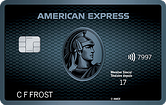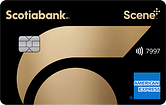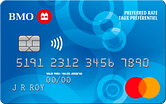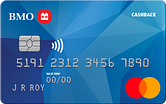Using a credit card is one of the easiest ways to make a payment. Just swipe your card, make your payment, and you’re good to go!
Unfortunately, you might spot some unanticipated fees when you check your credit card statement. That’s because credit card issuers reserve the right to charge various fees. You’re probably familiar with interest rates or annual fees, but there are several more that should be on your radar. We’ll explain each fee, so you know what to watch out for.
Key Takeaways
- Credit card fees include annual fees, interest charges, foreign transaction fees, and overlimit fees.
- Credit card fees vary greatly by card issuer and credit card, so do your research before selecting a new card.
- If your card issuer changes its terms (including their fees), they’re required to inform you.
Never miss an amazing deal again + get our bonus 250+ page eBook for FREE. Join 50,000 other Canadians who receive our weekly newsletter – learn more.
Annual fees
The annual fee is the price you pay, usually once a year, to use the credit card. Some credit cards break the fee into monthly payments.
While there are many no-fee credit cards, premium credit cards (with fees over $100) usually have more perks, benefits, and insurance coverage.
Interest charges
This is a really important fee, especially if you carry a credit card balance. The purchase interest rate is how much the issuer charges on your balance, which is why it’s important to keep your credit card paid off.
You’ll also be charged interest on cash advances and balance transfers. Since these are services, the interest rates are typically higher than the standard purchase interest rate.
Foreign transaction fees
When swiping your card outside of Canada, or even when you process a transaction in a foreign currency while buying online, there can be a fee associated with that purchase – usually around 2.5% of the total.
This seemingly small percentage can really add up, especially during a long trip overseas.
Luckily, there are a few cards that don't charge this fee.
Take the
Check out more details here:
Prefer not to pay for an annual fee? The
Related: How Foreign Currency Exchange Works When Returning Your Purchases
Extra card fees
Adding an extra card can be necessary (and beneficial) for some, but it can come at a cost.
Whether you have a joint account with your partner to earn extra rewards, giving an extra card to your child as an emergency card, or a business that needs multi-card access – extra card fees can really rack up your bill.
American Express can be a great option when an extra card or two is necessary, as most of their cards don’t include a charge for adding at least one additional card.
Here’s one to keep in mind:
The

Cash advance fees and interest rates
Withdrawing cash from a credit card can often come with cash advance fees that will be either a flat rate or percentage of the transaction. The money you take out will typically have higher interest rates than if you were to make a normal transaction as well.
You also start paying interest on your withdrawn cash right away. There's no grace period for cash withdrawals.
If you’re going to be withdrawing cash from your card often, it might be worth looking into applying for a low cash advance fee card, like the
This card has a cash advance interest rate of 15.99% and a flat cash advance fee of $5 – making it perfect for cash withdrawals.
Balance transfer fees and interest rates
Transferring debt from one card to another can come at a hefty price, typically at a 22.99% interest rate.
If you’re looking to transfer an existing balance to another card, try the
When you sign up, you get a promotional rate of 0.99% for 9 months.
The promo balance transfer fee is 2% of the total amount being transferred. If you live in Quebec, there's no balance transfer fee for this card.
Related: Best Balance Transfer Credit Cards In Canada
Overlimit fee
Going over your card limit is a mistake anyone can make. Avoid as much damage as possible to your score and avoid a pesky fee while you're at it (usually $29).
Since it was removed from the
Late payment fee
If you’re late on a payment, banks can take advantage of you by hiding a late payment interest rate in the fine print. Make sure you’re getting the best rate possible and you don’t get put in the penalty box.
A great card with no late payment fee is the
Dishonoured payment fee
If a payment isn't processed because a bank returns a cheque or refuses a pre-authorized debit, a fee will be charged to your account. Depending on the issuer, it can range from $25 to $48. Here are a few examples:
- RBC: $45
- BMO: $48
- Scotiabank: $48
- Tangerine: $25
- American Express: $25
Points reinstatement fee
If you fail to use your points within a given period, it’s going to cost you. Many card-specific programs will forfeit your points if you fail to keep your card in good standing as well.
For example, American Express currently reinstates expired points for a $35 administrative fee, as long as you do so within 12 months of forfeiting them.
Statement reprint
If you need a statement reprinted, you need to be aware of the associated fee. This fee is something a lot of banks are doing away with since most statements are available via online banking as a PDF.
Most banks, like CIBC or Scotiabank, set this cost at $5 but often the best solution is printing the PDF online.
Installment fees
If your bank allows you to pay your balance in installments, they will charge you a fee. This is relative to the length of time you've decided to pay it in, and the amount you owe.
The interest you pay is similar to what you’re normally charged for standard purchases, but you’ll see the details when you set up a payment plan.
FAQ
What fees does a credit card charge?
Credit card fees vary but can include annual fees, interest rates, late fees, overlimit fees, foreign exchange fees, extra card fees, and cash advance fees. This is why it’s important to read your card’s terms and conditions.
Is there a fee when using a credit card?
Payment processors charge merchants a processing fee for each transaction, but you typically aren’t charged a fee just for using a credit card. In the rare case that you might be charged, the fee should be displayed before you complete your purchase.
What is a normal annual fee for a credit card?
Credit card fees can range anywhere from $0 to $799, with premium cards charging at least $100+ a year. Keep in mind that the higher the fee, the more perks and benefits usually come with the card.
Why is there a 3% fee for credit cards?
Some merchants might pass off their processing fee to their customers. Generally, this is around 3%, but the merchant should make the fee clear before you make your purchase. Not all retailers do this though.
Is it legal to charge customers for credit card fees in Canada?
In most provinces, merchants have the legal right to pass on credit card fees to their customers. That said, merchants can’t charge more than what they pay for processing. The exception to all this is Quebec.
creditcardGenius is the only tool that compares 126+ features of 228 Canadian credit cards using math-based ratings and rankings that respond to your needs, instantly. Take our quiz and see which of Canada's 228 cards is for you.


 ×3 Award winner
×3 Award winner 



 $100 GeniusCash + Earn up to 15,000 Welcome Bonus Membership Rewards® Points.*
$100 GeniusCash + Earn up to 15,000 Welcome Bonus Membership Rewards® Points.*











































Comments
Leave a comment
Required fields are marked with *. Your email address will not be published.
Showing 3 comments